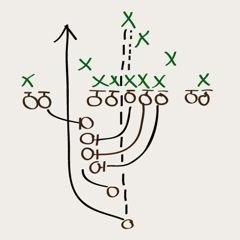The Sales Playbook is one of my favorite topics. So, when the Corporate Executive Board and their Sales Executive Council (SEC) announced their most recent research was entitled Rewriting the Playbook, How High Performers Win the Consensus-Based Sale, I was one of the first to register for the event highlighting their findings. After attending, I can unequivocally say, without a doubt, access to this research alone makes your membership to this world-class organization worthwhile. Every sales leader must hear the CEB’s message about how to win in today’s marketplace.
Most sales professionals would agree they rarely work with a single buyer. The Marketing Sherpa quantified this situation, noting, for sales of just $100K or more, sales professionals should expect between four and eight buyers involved in the decision. In a recent multi-month sale to a high-tech company, I was convinced they had opened up the buying committee to their Facebook friends! Every meeting introduced five or more members to the decision-making process. This trend is growing across all industries.
The SEC’s research dove deep to understand how star performing sales people still win in this environment. They heard from both middle-of-the-pack performers and top achievers that there was one key influence that helped them win; everyone called this person something different: a coach, mentor, advocate – someone who helped the salesperson navigate the rocky terrain.
Having written, advised companies regarding and launched many sales playbooks myself, I wasn’t surprised with these findings. In my upcoming book, I devote an entire chapter to describing how to assemble top performers, document best practices and leverage mentors and advocates to help sales teams succeed. Every successful salesperson acknowledges an advocate is key to navigating multiple buyers and driving change. They can’t say enough about it! However, in my research, I have always cut off the conversation too early and didn’t unearth the rich details the SEC reports.
SEC researchers listened for a long time, collecting quantitative data via structured interviews. In fact, they spent eight months listening to sellers and buyers. The outcome? The perfect, end-all/be-all advocate/coach is one in a million. More specifically, research shows only 1 in 700 people could have all the necessary traits to coach an ideal seller. They quipped in their report, “It’s like finding a unicorn.”
Since unicorn hunting is futile, they suggest sales people search for the right type of advocate for each opportunity. It turns out, there are six distinct types of advocate/coaches. The top performing reps found “mobilizers” who were best able to drive change. These came in three flavors:
- The Go-Getter: Champions other good ideas and always delivers more than asked.
- The Teacher: Often teaches new insights and is good at convincing others.
- The Skeptic: Perceives risk and prepares stakeholders for disruptive ideas.
The middle-of-the pack, average performers are drawn to “talkers” and avoid difficult conversations in favor of focusing on friendly discussions yielding information about the customer. The three types of talkers include:
- The Guide: Provides information, speaks the truth and distributes information equally.
- The Friend: Readily accessible, helps reps network and is generous with time.
- The Climber: Needs to personally gain from projects.
The SEC not only identified the six types of advocate/coaches to help reps win more often, they built out an entire set of tools to help you shift reps towards the right buyers that can drive change. This is the most comprehensive work I have ever seen on this crucial buying influence. Every sales leader should be following the SEC’s blog this year as they continue to be out in front of selling trends.
Keep up-to-date with Fast Track Tools by subscribing to our blog, via Twitter @fasttracktools and join our Facebook community!
photo by Katrina Snaps
